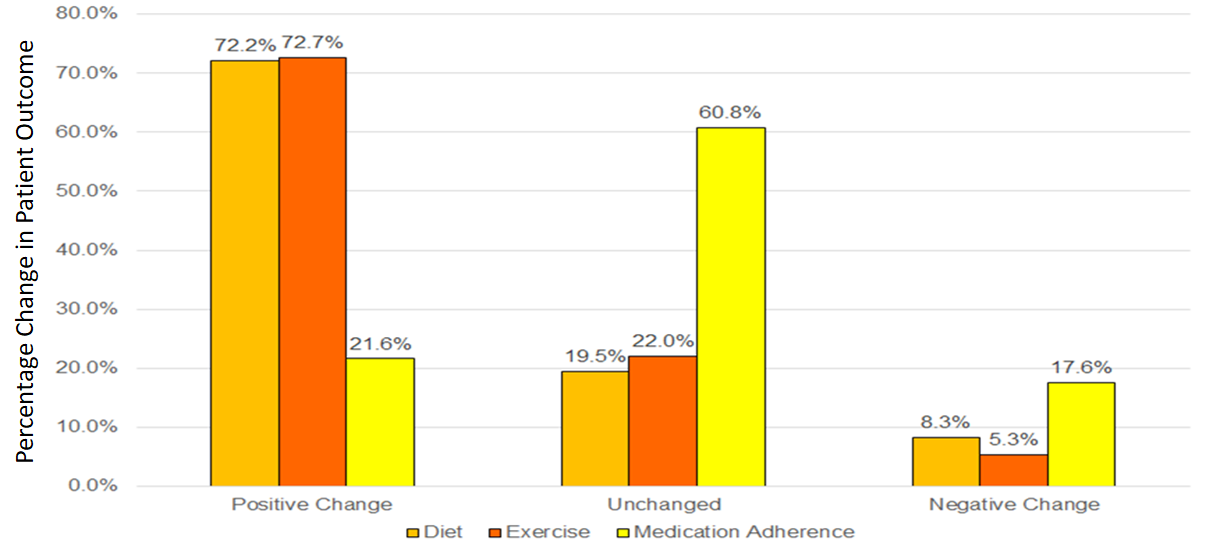PSS Community Chapter 2019/2020
Ex-officio:
Mr Ivan Ng Boon Khiang
Ms Tiah Hui Xian
Chairperson:
Ms Carolyn Chan Li Min
Vice-Chairperson:
Ms Lee Chiawli
Secretary:
Ms Lim Cinny
Committee Members:
Ms Grace Chew Wei Zhi
Ms Grace Kng Li Lin
Ms Nelley Toh Shi Yun
Ms Toh Yan Ting
Objectives
1. To establish the professional practice of community pharmacists
2. To improve health outcomes for patients by increasing access to preventive care by community pharmacists in the management of minor ailments, as well as chronic conditions
3. To enhance and promote the role of community pharmacist as the trusted and accessible healthcare professional of choice, fostering collaborative care to promote health
Click HERE for Community Chapter's Terms of Reference
Join us on our facebook page for the latest updates!
1. Community Pharmacy Health Champion Programme (CPHCP)
The Community Pharmacy Health Champion Programme (CPHCP) a serves as a platform for pharmacist to reach out to general public, to share their knowledge and empower people to cope with chronic ailments, specifically diabetes and hypertension; and/or help them undergo lifestyle modifications. The chapter revamped the programme by refining the documentation format to include objective outcome measures allowing for quantitative data analysis. This is to determine the impact of counselling by community pharmacists to improve three key self-management behaviours namely, exercise time, diet and medication adherence. In addition to diabetes and hypertension, the revamped programme also allows for follow-up with those who are pre-diabetic and pre-hypertensive.
From November 2018 – June 2019, a total of 174 patients were counselled with 844 follow-ups rendered. Most of the follow-ups were done with patients within the age group of 50-69 years old, with hypertension accounting for 55.6% of the patients. (See Figure 1)

Figure 1. Number of follow-ups and the age of the patients with various medical conditions
A total of 57.5% of follow-ups led to improved outcomes for patients in their diet, exercise or medication adherence. Improvement in exercise time (72.3%) was reported most frequently amongst the three investigated self-management behaviours with an average of 40.9% increase in exercise time. (See Figure 2)
A total of 60.8% of follow-ups in medication adherence had no change in the self-management behaviours following community pharmacists’ counselling. This is because their optimal medication adherence scores were already achieved prior to counselling. As for the reasons for negative change, the most common reasons cited were due to financial burden followed by side effects of medications and lastly the purpose of the medication. (See Figure 2)

Figure 2. Patient-reported outcomes resulting from non-pharmacological counselling by community pharmacist under CPHCP
Positive Change – Improvements in their diet, exercise or medication adherence
Unchanged – No changes to their diet, exercise or medication adherence
Negative Change – Worsening of diet management, exercise regime or medical adherence
To appreciate and encourage active participation from community pharmacists, the top ten contributors for CPHCP were recognised at the 29th Singapore Pharmacy Congress held on 6th October 2019, Suntec Singapore Convention & Exhibition Centre.
The names of the top ten contributors in alphabetical order are:
- Ms. Ang Rui Xia
- Ms. Cheah Xin Yi Debra
- Ms. Chang Yung Yung
- Mr. Khoo Chee Chuen Roy
- Mr. Leow Chang Liang Benjamin
- Mr. Lim Jia Le
- Ms. Soh Jia Shing
- Ms. Tan Ming Ming
- Ms. Wang Hui
- Ms. Yang Chenhui
2. Media Queries and Public Engagement
The Community Chapter has represented PSS in media queries and interviews with MediaCorp this year. This serves as a platform to educate the public on certain health information, provide advice on minor ailments, reinforce medication safety and promote health.
In November 2019, the chapter worked with Channel News Asia (CNA) Lifestyle on an article about cough preparations. This article was written to educate the public about the different types of cough and the various products available for treatment. It is also important to look at the active ingredient written on the product label so that the consumer is able to check for any possible allergy towards the product. At the same time, it also allows the consumer to seek information relating to the particular ingredient.
Online Article Source: https://cnalifestyle.channelnewsasia.com/wellness/how-to-choose-the-right-cough-medicine-12031608
On 26 November 2019, the Community Chapter was featured on Channel 8 and Channel U news television and online platforms providing expert advice on the online purchase of health supplements. The news feature aims to alert the public that health products sold online from dubious sources may be adulterated and contain banned substances. Consumption of these substances may lead to serious side effects. Hence, when buying supplements online, it is important to check the background of the seller and only purchase from reliable merchants.
Online Report & Video Source: https://www.8world.com/news/singapore/article/hsa-warns-against-illegal-online-pills-984661
3. PSS Practice Guide for Minor Ailments (PGMA)

The PSS Practice Guide for Minor Ailments is a compendium of guidelines for 14 frequently encountered minor ailments. The key objective is to standardise practice across institutions and enhance delivery of pharmaceutical care to patients and consumers in the primary sector. The modules are available on the PSS website and are free for all PSS members. Upon completion of each module, 2 CPE points and a certificate of completion are awarded.
In 2019, the PGMA modules were revised by community pharmacists from Guardian, Unity and Watsons to ensure that the guidelines are updated according to latest standards of practice. The topics are currently being relaunched in phases as below:
List of Practice (Revised 2022):
- Principles of Self Care
Vulvovaginal Candidiasis- Understanding Cough, Cold, Flu and Allergic Rhinitis
- Gastroesophageal Reflux Disease (GERD)
- Hair Loss
- Skin Conditions Part I (Eczema, Dandruff, Seborrheic Dermatitis)
- Skin Conditions Part II (Fungal, Warts, Cold Sores, Acne)
- Smoking Cessation
Travel Medicines (Malaria Prophylaxis, Motion Sickness, Mountain Sickness, Travelers’ Diarrhea)- Pain Management
- Irritable Bowel Syndrome (Constipation, Diarrhea)
- Eye Conditions (Dry Eyes, Conjuntivitis, Stye)
Wound Management- Weight Management
- Foot Care
- Oral Health
4. Start to S.T.O.P.

Poster (Left) and Pamphlet (Right) for Start to S.T.O.P
Start to S.T.O.P. (Speak to Our Pharmacists) is a smoking cessation programme championed by the PSS Community Chapter to increase cessation rates through dedicated counselling sessions with pharmacists. It is a nationwide collaborative effort by PSS with Guardian, Unity and Watsons. The programme comprises of face-to-face and telephone counselling sessions. Every session is professionally customised and personalised according to the participant’s progress.
In 2019, the chapter started collaboration with Tan Tock Seng Hospital (TTSH) to embark on a referral programme for smoking cessation patients to be decanted out to the community.
5. National Medication Information (NMI)
The National Medical Information (NMI) workgroup was formed in 2019 and one of its objectives is to create a national standardised Medication Information Leaflet (MIL) for different medications. The Community Chapter is leading the creation of MILs for minor ailments according to drug classes. There are 17 MILs identified for minor ailments. 10 MILs have been completed in 2019, namely:
1) Antacids
2) H2 Receptor Antagonists
3) Proton Pump Inhibitors
4) Antihistamines (Oral)
5) Antihistamines (Eye drops)
6) Antitussives
7) Mucolytics and Expectorants
8) NSAIDs (Oral and topical)
9) Paracetamol
10) Antifungals (Topical and pessaries)
The remaining 7 MILs will be done in 2020:
1) Steroid Creams
2) Anti-acne Preparations
3) Anti-diarrhoea
4) Anti-nausea
5) Anti-spasmodic
6) Anti-malaria
7) Insect repellent
The Facebook Page will continue to be instrumental in promoting the roles and values of community pharmacists to the public, and as a critical sharing platform among community pharmacists.

https://www.facebook.com/PharmaceuticalSocietyOfSingaporeCommunityChapter/
